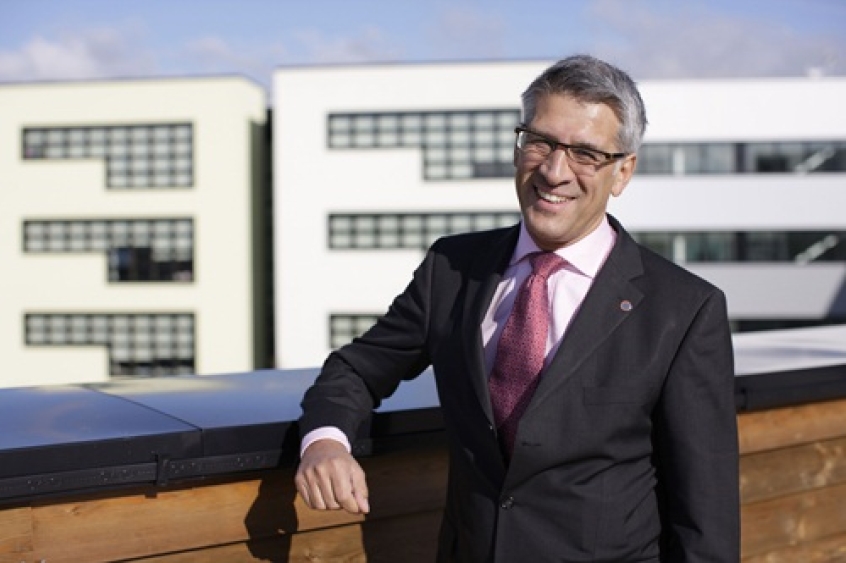
Responses to Steve Chalke's comments in support of homosexuality have ranged from disappointment and sadness, to strong criticism.
Chalke shocked the evangelical community on Tuesday with an article in Christianity magazine explaining his decision to support same-sex relationships.
The leading evangelical figure explained that he now believes permanent, faithful, stable homosexual relationships are not sinful.
In his article, he also criticised the attitude of the church towards gay people and called for greater inclusion.
"Rather than condemn and exclude, can we dare to create an environment for homosexual people where issues of self-esteem and wellbeing can be talked about; where the virtues of loyalty, respect, interdependence and faithfulness can be nurtured, and where exclusive and permanent same-sex relationships can be supported?" he wrote.
Tony Campolo wrote a sympathetic response to Chalke in which he agreed that churches need to improve their treatment of gay people, but remained ultimately unconvinced by his arguments supporting gay relationships.
"The church cannot afford to go on alienating the youth of the nation by the way it treats gay people," he wrote.
"For my own part, I remain conservative on the issue, but I agree with Steve that the attitudes of many churches are homophobic and cruel.
"Whether or not we change our positions on accepting same-sex relationships or even gay marriage, we Evangelicals have to face the reality that the time has come for many of us to change our attitudes towards gay people, and show something of the love and grace of God in the name of His Son Jesus."
Writing on the Evangelical Alliance website, Baptist minister and senior lecturer in theology at St Andrews University, Steve Holmes, similarly applauded Chalke for "courageously [naming] a pastoral scandal that we have swept under the carpet for too long".
Whilst he agreed that the church needed to be more welcoming to gay people, he argued that Chalke's solution was not the right one.
"I do not think it can be justified biblically, and I do not think it will work," he said.
"The urgency here, though, is not in getting our theoretical ethics right; it is learning to love people we, as evangelical Christians, have too often failed to love - and indeed seeking forgiveness from people we have wounded.
"My most passionate prayer for the discussion Steve has begun is not that we agree on my conclusions, or his, or anyone else's, but that we might together find ways to make our churches counter-cultural communities of love where every person may find true human intimacy and God's healing grace."
The Evangelical Alliance was quick to issue a statement yesterday distancing itself from Chalke's position.
EA general director Steve Clifford said he felt "sadness and disappointment", and warned that Chalke's interpretation was in danger of undermining the "courageous lifestyle decisions" of Christians who have chosen not to act out on their same-sex attractions.
"Generations of Christians have faced the challenge of making the gospel relevant within their cultural settings," he said.
"The danger we all face, and I fear Steve has succumbed to, is that we produce 'a god' in our own likeness or in the likeness of the culture in which we find ourselves.
"Steve's approach to biblical interpretation allows for a god in the likeness of 21st century Western-European mindsets."
Head of the Christian Medical Fellowship, Dr Peter Saunders expressed similar disappointment towards Chalke's comments and his choice of timing, as the Government continues to push through the legalisation of gay marriage. The move has been strongly opposed by evangelicals.
"I have no doubt that Steve Chalke's views are carefully considered and sincerely held and I, like many, have hugely appreciated his contributions to the church and to society in many of the causes which he has championed," said Dr Saunders.
"However he has clearly chosen deliberately to take this controversial stand at this time and in this way in an attempt to influence the upcoming parliamentary debate on gay marriage.
"I strongly believe that he has badly misinterpreted Scripture on this matter and is now publicly teaching what is, in essence, heresy. That is a very serious matter indeed."
Peter Ould, an Anglican priest and author and speaker on homosexuality issues, challenged Chalke's interpretation of Scripture and questioned how a pastoral response affirming homosexual behaviour could sit alongside existing pastoral care helping gay Christians to live a single chaste life or establish new sexual identities.
"Steve's core argument is that the verses in the Bible that cover the issue don't engage with 'Permanent, Stable, Faithful' relationships, but then is that really the case? What about permanent, stable, faithful incest?" he said.













